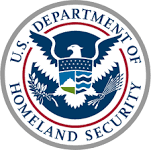
WASHINGTON —The U.S. Department of Homeland Security is seeking data and information from the public that DHS intends to use to develop a public charge regulatory proposal. The purpose of public comment is to ensure that the proposal is fair, consistent with law, and informed by relevant data and evidence. Public comment also will help DHS ensure that the proposed regulation does not impose undue burdens on noncitizens seeking admission to or adjustment of status in the United States.

“It is critical that immigrants, many of whom are essential and frontline workers, can access necessary government services for which they are eligible to keep their families safe and healthy,” said Ur M. Jaddou, director of U.S. Citizenship and Immigration Services. “DHS is taking an essential step to implement a fair and rational rule that does not cause fear and confusion among immigrant communities. We will continue to uphold this administration’s efforts to remove undue barriers in the immigration system and sources of fear that prevent immigrants from accessing benefits for which they are eligible.”
DHS has published an Advance Notice of Proposed Rulemaking (ANPRM) to solicit data and information from the public, including from state, territorial, local, and tribal agencies that administer public benefits programs, and from nonprofit organizations. The ANPRM identifies key considerations associated with the public charge ground of inadmissibility. These considerations include how DHS should define the term “public charge,” which public benefits DHS should consider relevant to the public charge inadmissibility determination, and how DHS should assess the mandatory statutory factors when determining whether a noncitizen is likely to become a public charge. The ANPRM asks for feedback from the public on these and other matters. The public comment period is open for 60 days, beginning Monday, Aug. 23, 2021, and closing on Oct. 22, 2021.
The ANPRM includes information about upcoming virtual public listening sessions that offer another opportunity for the public to provide DHS with relevant input for the public charge rulemaking.
Under the Immigration and Nationality Act, a noncitizen who is likely to become a public charge is generally inadmissible to the United States and ineligible to become a lawful permanent resident. The ANPRM does not change how USCIS makes public charge inadmissibility determinations. Until DHS completes the rulemaking process and implements new regulations, USCIS will continue to apply the public charge inadmissibility statute consistent with the 1999 Interim Field Guidance. Under this guidance, USCIS does not consider a person’s receipt of Medicaid (except for Medicaid for long-term institutionalization), public housing, or Supplemental Nutrition Assistance Program benefits and other nutrition assistance as part of the public charge inadmissibility determination. Vaccinations or medical treatment for COVID-19 also are not considered for public charge purposes.
For more information on USCIS and its programs, please visit uscis.gov or follow us on Twitter, Instagram, YouTube, Facebook, and LinkedIn.



